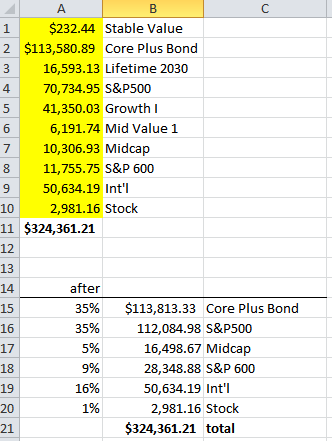Yes, that's the right math for the first month. After that, don't do any more division, just sell the same number of shares (e.g. 23 in the case of your IRA, 204 from your husband's IRA, and 13 from your husband's solo 401K) each month. There will be a slightly different number of shares left in the account on the 9th month, just sell them all.For example, 215 shares divided by 9 = 23 shares. Each month I will sell 23 shares of HC from my IRA. I repeat the process on the same day each month with the other 2 accounts. Is this correct?
I wouldn't DCA, I'd just buy it all at once. See post #22 for the reasons.What are your thoughts regarding dollar cost averaging vs. lump sum investing our daughter's money into her balanced account?
Last edited:

